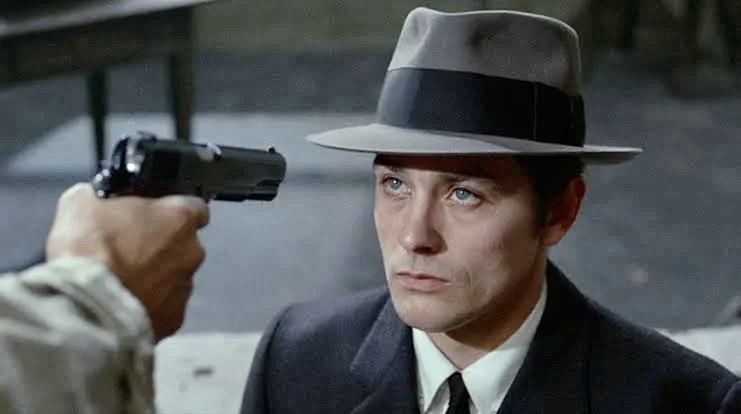Summer is sweeter with these diverse and fascinating new Blu-rays this month. From 4k restorations of the sublime (Le Samourai) and the stupid (Can’t Stop the Music). To a fabulously restored suspense tale (The Chase). To filmed versions of William Inge and Tennessee Williams plays (Come Back, Little Sheba and The Rose Tattoo). To some excellent 70s thrillers and wild 70s gay X-rated horror. Plus, a great collection of Film Noir rarities from Kino Lorber, and another fun volume of Gothic Horror films from Severin. There’s something for everyone.
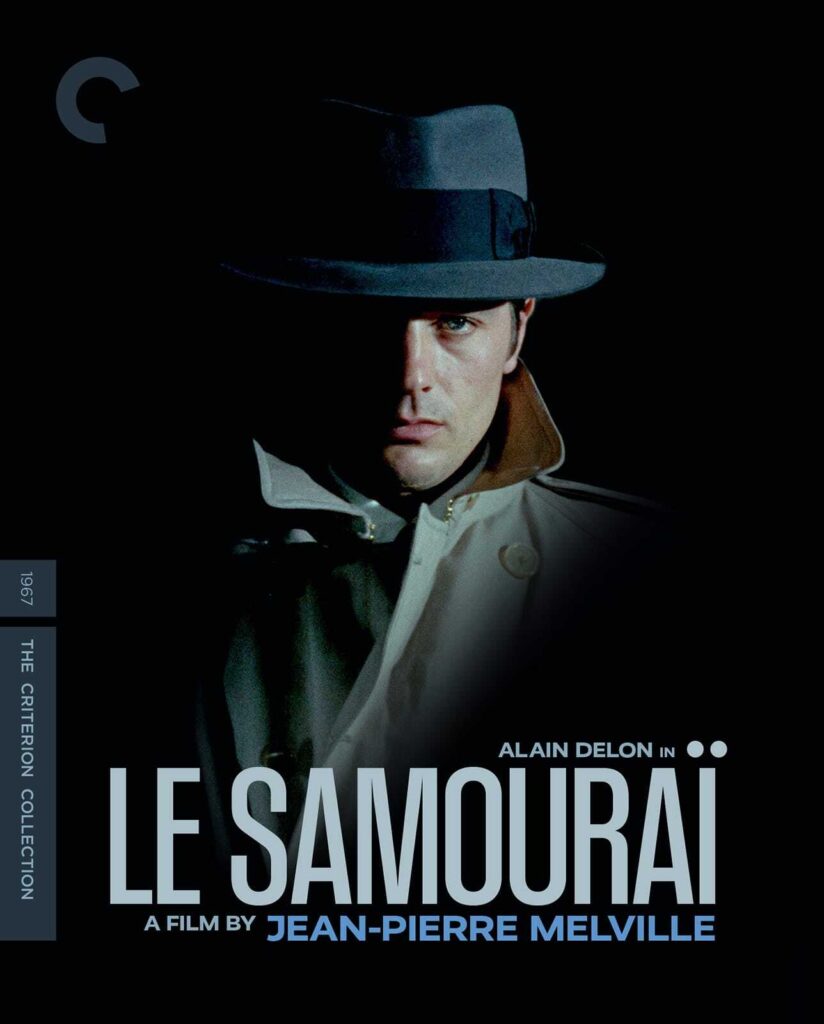
Le Samourai (Criterion) 4K/UHD. There are certain movies I love so much I could fuck them. This film is one of them. Alain Delon is unforgettable and iconic, in his fedora and trench coat (with the collar up), as a contract killer in this stylish, genre-busting, 1967 French crime film by Jean-Pierre Melville. This new high definition restoration captures the carefully constructed, muted look of the film. “My dream is to make a color movie in black and white,“ Melville reportedly said. A stunning film, which has been mercilessly ripped off by countless directors since. The extras include interviews with Melville and Delon; a short documentary about the director and actor; and an essay by film scholar David Thompson.
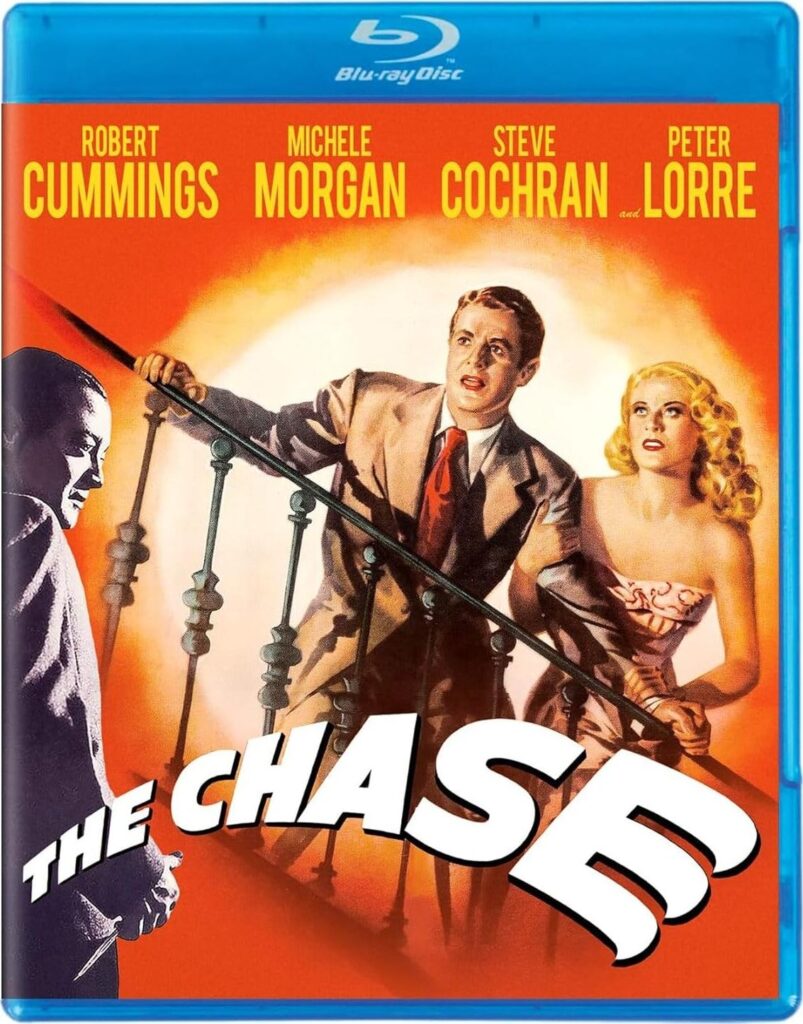
The Chase (Kino Lorber) Outstanding 1946 film noir directed by Arthur Ripley based on a book by Cornell Woolrich (Rear Window), restored by UCLA’s Film and Television Archive. Robert Cummings plays Chuck Scott, a broke, PTSD-suffering veteran in Miami, who finds a billfold on the street and returns it to its owner (after taking some of the cash for a bacon and eggs breakfast). The owner is Eddie Roman, a fearsome, sadistic gangster (played with frightening intensity by Steve Cochran), who is amused by this act of honesty and hires Chuck as chauffeur. Peter Lorre plays Eddie’s cold-blooded, killer bodyguard and Michele Morgan plays Lorna, the beautiful, suicidal, trapped wife who convinces Chuck to help her escape to Havana. But when they get there she is stabbed to death in a crowded bar and Chuck is framed for her murder. Then the movie pulls the rug out from under the viewer in all sorts of unexpected ways. (It also dispenses with the plot of the Cornell Woolrich book it’s based on- The Black Path of Fear). With great audio commentary by director Guy Maddin (a huge fan of the film). If you’ve never seen this one, you are in for a great, dark treat. There are also two radio broadcasts of The Black Path of Fear, one starring Brian Donlevy in the lead, the other Cary Grant.
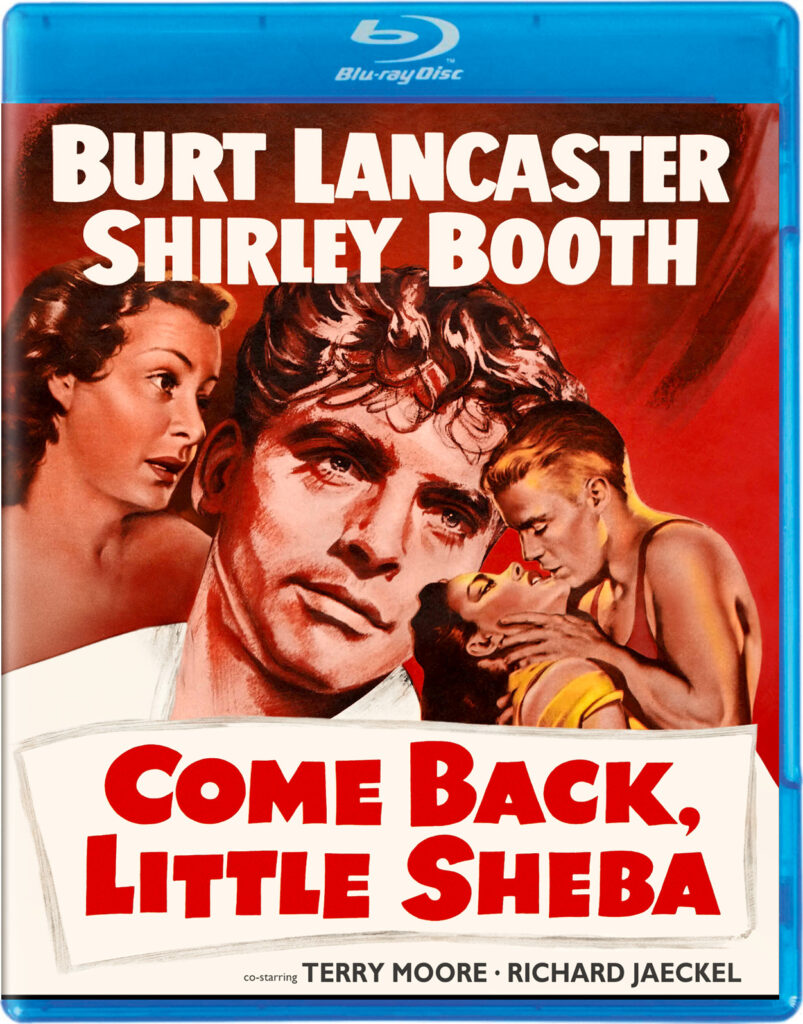
Come Back, Little Sheba (Kino Lorber) Shirley Booth reprises her Tony-winning Broadway performance in this heartbreaking early play by William Inge (Picnic, Bus Stop). She plays the slovenly wife of a recovering alcoholic (Burt Lancaster– never better). She rents a room in her house to a pretty college student (Terry Moore) and encourages the girl’s friendship with a hunky athlete (Richard Jaeckel), while neglecting housework. Meanwhile she repeatedly calls out on the porch for her beloved lost dog Sheba while her husband’s frustration and rage bubbles to the surface. Booth’s performance is equally pitiful and achingly poignant, and she rightfully won an Oscar for this role. This was director Daniel Mann’s 1952 directorial debut.
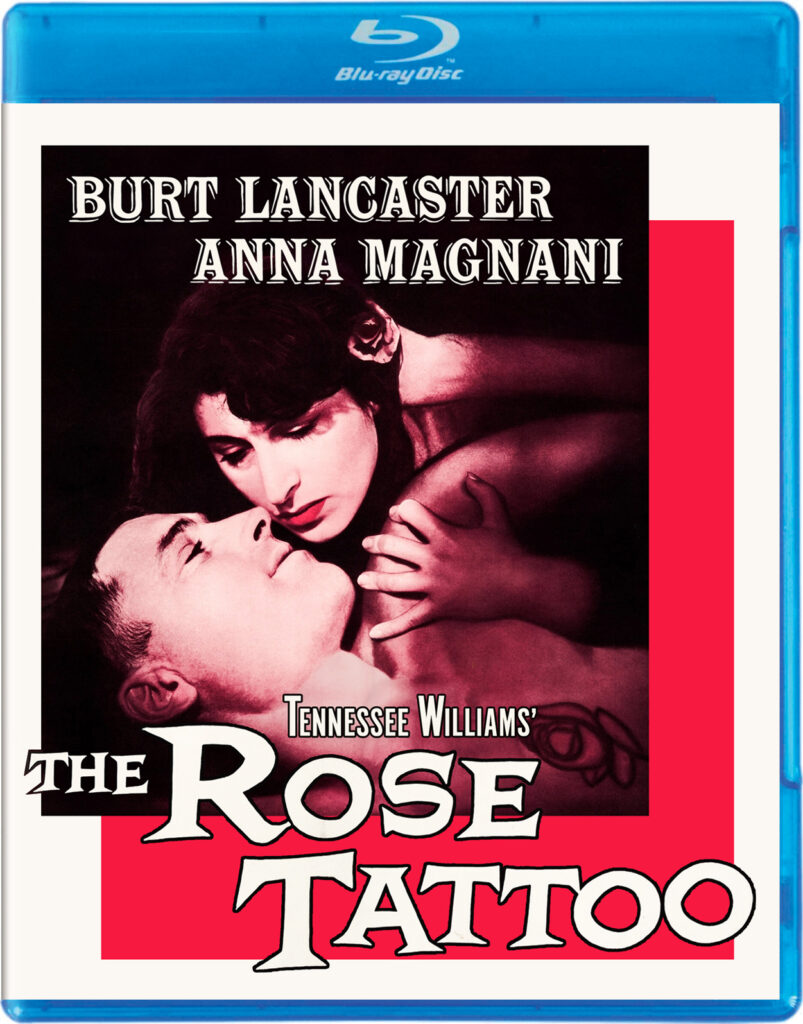
The Rose Tattoo (Kino Lorber) Tennessee Williams wrote this play with Anna Magnani in mind, but scheduling problems made her unable to play the role on stage. Thankfully she was available for the 1955 film adaptation, sensitively directed by Daniel Mann. She burns a hole in the screen as Sicilian seamstress Serafina, who loses her truck-driving husband in an accident and miscarries their child at the same time. Crippled emotionally, she turns into a recluse, haunted that her husband had been unfaithful to her. Into her life comes truck driver Alvaro (Burt Lancaster) who gets a rose tattoo on his chest just like her former husband, which only horrifies her. Both Lancaster and Magnani bring the heat to this touching drama. Magnani won an Oscar, a Golden Globe and the NY Film Critics Award for her powerhouse performance.
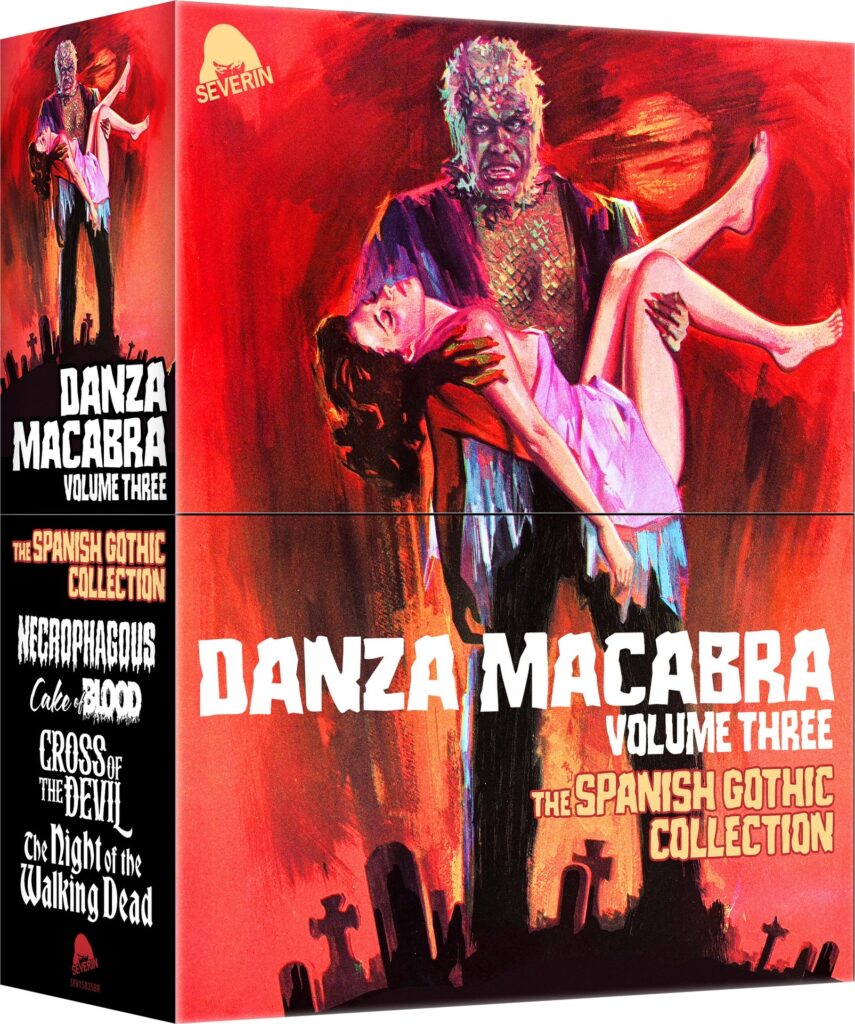
Danza Macabra: Volume Three (Severin) The newest collection of macabre treats comes from Spain this time around. Necrophagous (1971) is more weirdness from the director of The Killer of Dolls– Miquel Madrid. A young nobleman returns to his family castle only to find his wife and their expectant child have died while he was gone. But everyone is being so vague and suspicious he digs up her grave only to find it empty. A real head-scratcher, the film seems to be about some buried lizard creature kept alive by other murders, but your guess is as good as mine. This film tied for best film at the Stiges Film Festival (but listening to a remembrance from the daughter of the festival founder on the extras, that choice caused a great deal of controversy). Cake of Blood (1971) is an omnibus horror collection by different Spanish directors. The first story is set during the Middle Ages where a knight on horseback becomes bewitched by female dead body he finds laid out in a deserted monastery. The second film is a strange take on the Frankenstein story starring the fabulous Marisa Paredes (All About My Mother). The Frankenstein creation is played by handsome Eusebio Poncela (who played the gay voyeur in The Cannibal Man). The next story is a vampire saga in ancient Roman times, and the last about a home invader haunted by the dead husband of the house. Cross of the Devil (1974). This is another take on the Templar Knights, made popular in the Tombs of the Blind Dead films. The story is about a British journalist (Ramiro Oliveros) who returns to Spain with his girlfriend (Carmen Sevilla) when he receives a fearful letter from his sister. When he arrives, he finds that she has been murdered and the more he investigates the closer he gets to a series of troubling nightmares he has had about the skeletal Templar Knights chasing a woman in the forest at night. Directed by John Gilling (who directed great Hammer films like The Plague of the Zombies and The Reptile). An excellent, atmospheric gothic melodrama. The Night of the Walking Dead (1974) Argentine director Leon Klimovsky is best known for his collaborations with actor Paul Naschy. This is the third of a vampire trilogy and is also known as Strange Love of the Vampires. Set in the 19th Century a village is suffering a plague of mysterious deaths. The superstitious townspeople pound stakes into the hearts of the dead, little knowing their graves are being opened by a tribe of vampires who pull the stakes out, reanimating the corpses. Catherine (Emma Cohen) is a sickly young woman who is visited by the mysterious Count Rudolph (Carlos Ballesteros) who invites her to the castle on the hill for a night of vampire revelry. But he hesitates to make her like he is, knowing the curse of being forever undead. This is a terrific, moody, even eerily romantic vampire saga.
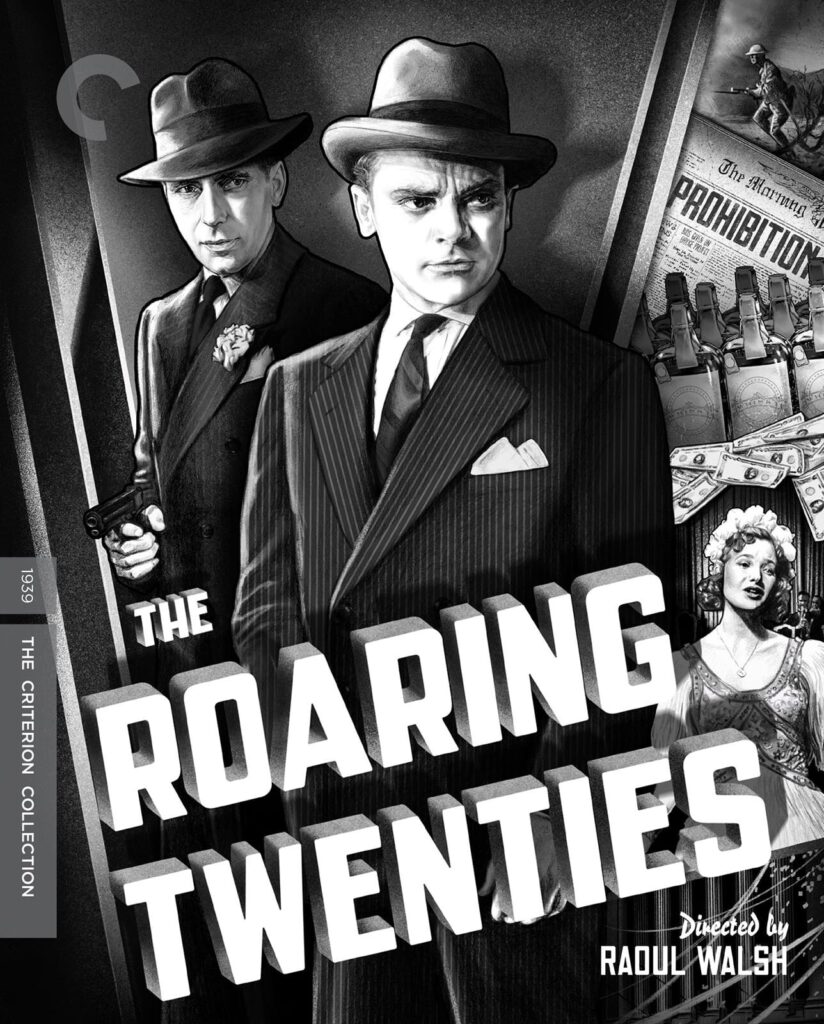
The Roaring Twenties (Criterion) This furiously-paced 1939 gangster saga begins with three men who meet in a foxhole during War I. They return to an America rocked by Prohibition and joblessness. Eddie (James Cagney) rises fast in the bootleg business with a cab company as front. George (Humphrey Bogart) is a sadistic, tough guy hood. Lloyd (Jeffrey Lynn) plays a decent lawyer reluctantly getting them out of jams. Gladys George is incredibly affecting as the brassy, “Texas” Guinan-like, speakeasy hostess Panama Smith, who pines for Eddie. Jean (Priscilla Lane) is the sweet kid and aspiring singer Eddie falls for. Beautifully directed by Raoul Walsh this is the one of the finest and last of these type of crime dramas for Warner Brothers as World War II loomed. This comes with audio commentary by film historian Lincoln Hurst and an excerpt from an interview with director Raoul Walsh.
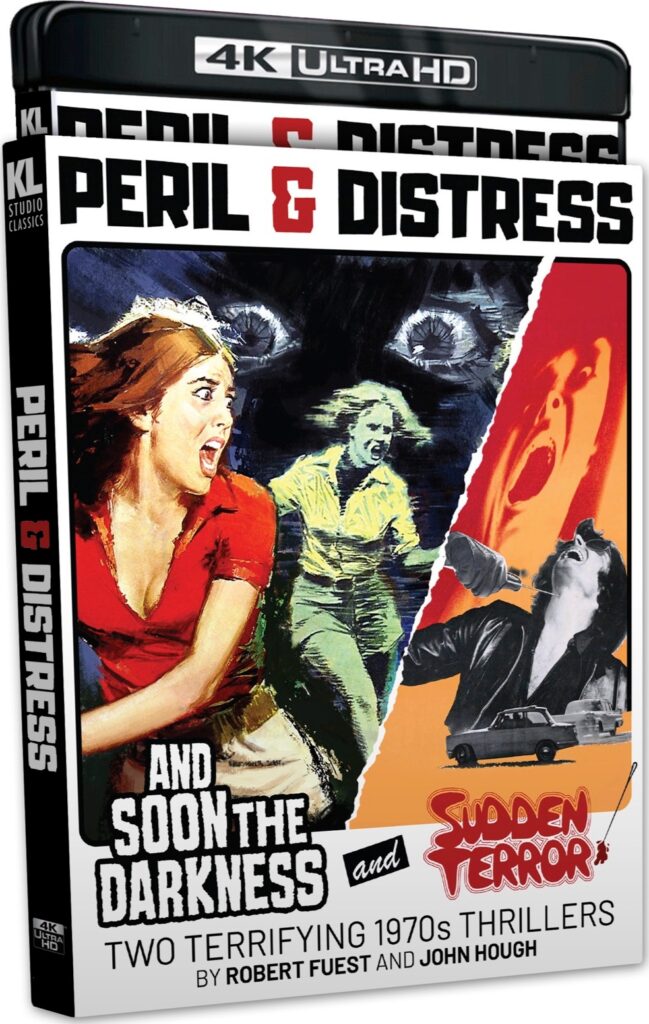
Peril & Distress (Kino Lorber) Two excellent 70s thrillers. And Soon the Darkness is about two young British medical students- Jane (Pamela Franklin) and Cathy (Michelle Dotrice)- set out on a leisurely bike tour of France. On a lonely section of road, the two friends argue and briefly separate. Cathy goes missing and while Jane investigates her friend’s disappearance her encounters with police, sinister villagers and a mysterious stranger on a moped leave her not knowing who to trust. A sleek, well-crafted thriller directed by Robert Fuest that really captures the “stranger in a strange land” sense of isolation and paranoia. Sudden Terror stars young Mark Lester (Oliver!) as a “boy who cried wolf” who witnesses an actual assassination attempt and no one believes him. Meanwhile two contract killers hunt him down in this suspenseful tale directed by John Hough and filmed in Malta. Susan George plays his sexy sister.
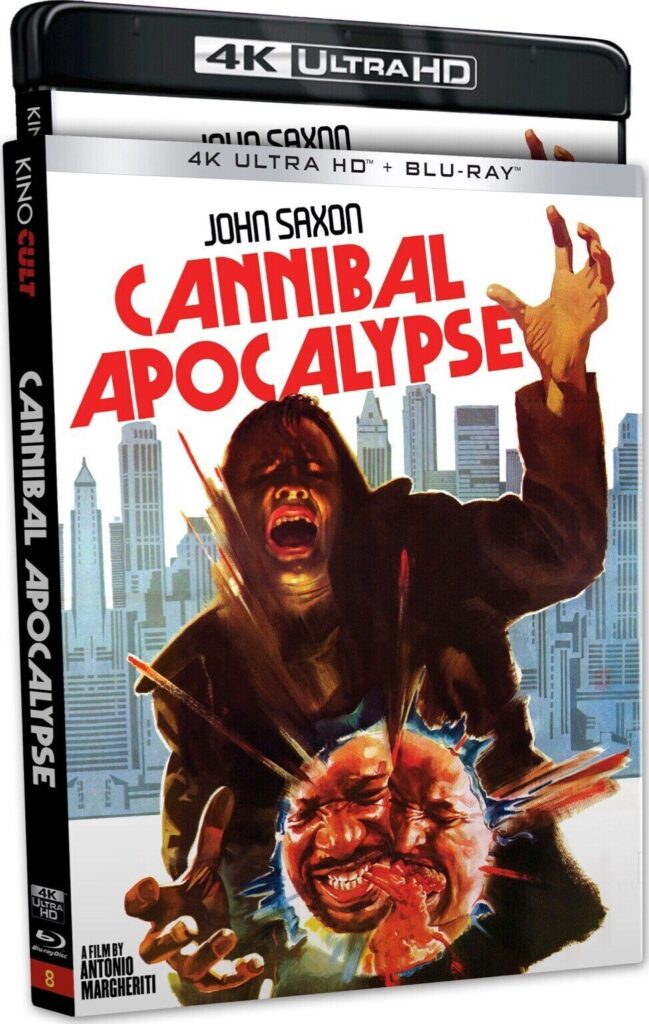
Cannibal Apocalypse (Kino Lorber) A new 4K UHD disc or a terrific Italian gut-munching zombie movie (filmed in Atlanta), directed by Antonio Margheriti (Castle of Blood) and starring John Saxon. The film is about Vietnam veterans who return home with an infection that transforms them into hungry cannibals. This is the gory, uncut version from a 4K restoration and comes with a documentary on the making of the film and a video tour of the film locations. (The film is also known as Cannibals in The Streets and Invasion of The Fleshhunters, but any way you slice it, it’s damn tasty).
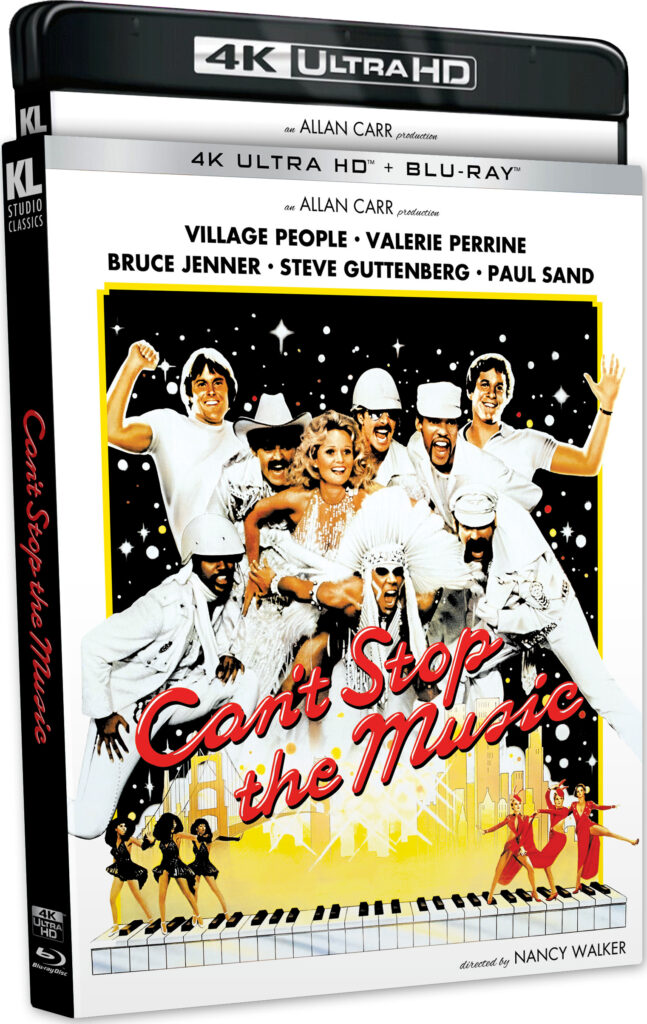
Can’t Stop the Music (Kino Lorber) A new 4K UHD Blu-ray of the camp, idiotic 1980 film capitalizing on the marginal popularity of the heterosexually-challenged disco group The Village People. Poor Nancy Walker, the wonderful character actress, was just in-over-her-head as director. How could anyone make this mess work? Especially with the script that can’t make up its mind what it really is about. One feels bad for Valerie Perrine, Steve Guttenberg, Paul Sand, and Tammy Grimes. But, God forgive me, I will always buy any new digital restoration if just for the jaw-dropping Busby Berkeley-like number set in a locker room in which partially nude men whip towels at each other and dive into a pool to “WMCA.” Oh yes, and before “Caitlyn” here is a young Bruce Jenner prancing down Christopher Street in cut-off shorts.
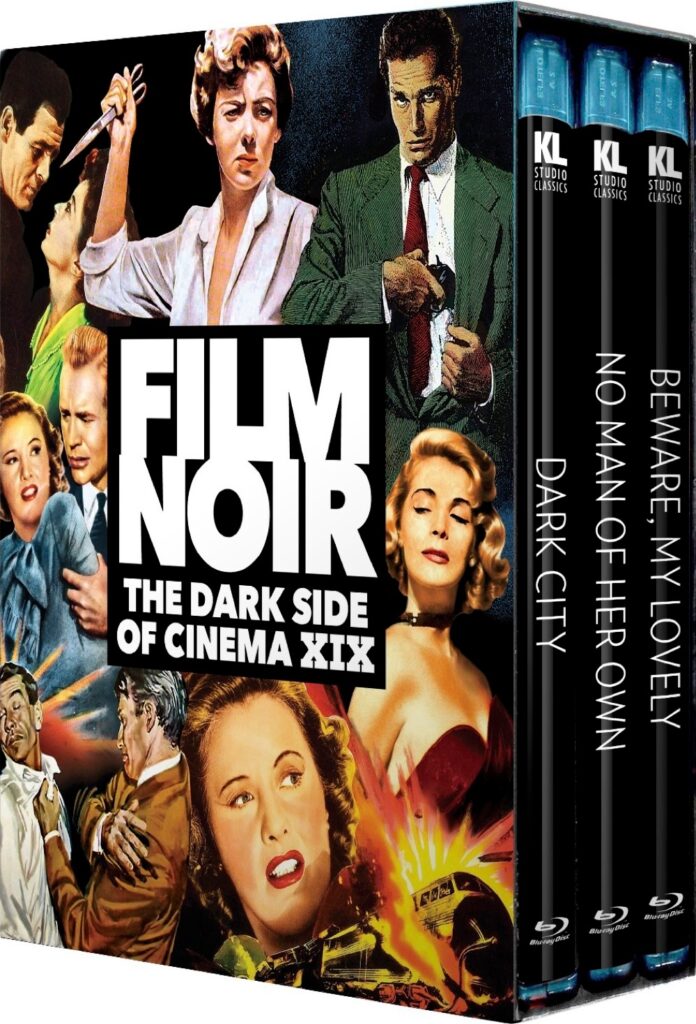
Film Noir: The Dark Side of Cinema XIX (Kino Lorber) Three quirky film noirs with HD masters by Paramount Pictures. Dark City (1950) Charlton Heston’s film debut as Danny Haley, running a bookie joint with ulcer-plagued Barney (Ed Begley) and sadistic joker Augie (Jack Webb). He’s dating beautiful lounge singer Fran (Lizabeth Scott), who can’t get Danny to emotionally commit to her. One night the guys take serviceman Arthur Winant (Don DeFore) for all his money (including a $5,000 check) at a crooked card game and he hangs himself in his hotel room. That’s when Arthur’s shadowy, psychopathic brother murderously comes after each man involved in the card game. Viveca Lindfors does a nice turn as Arthur’s widow. Excellent direction by William Dieterle, this is a gripping little thriller. Nice audio commentary by film historian Alan K. Rode. No Man of Her Own (1950) Directed by Mitchell Leisen and based on a Cornell Woolrich novel (under the pseudonym William Irish) called I Married a Dead Man. Barbara Stanywck plays down-on-her-luck unwed and pregnant Helen Ferguson who meets a lovely expectant newlywed couple on a train (Richard Denning & Phyllis Thaxter). There is a horrible train crash and the couple is killed and she is mistaken for the dead bride and she and her newborn are welcomed into the family of their dead son (they had never met his bride). She emotionally bonds with the family and goes along with the charade not wanting to hurt them, but things get complicated when she begins to fall for the brother (John Lund) and a shadowy figure from her past shows up with blackmail in mind. A cleverly constructed melodrama with two separate audio commentaries to fill in the blanks of the film’s production Beware, My Lovely (1952) Set in 1918, Ida Lupino stars as a war widow who hires a vagrant handyman (Robert Ryan) to help her with all the cleaning of the house during the Christmas holidays. She soon realizes that the man is clearly unbalanced as he locks her in the house, yanks out the phone, terrifying her as his paranoia and mood swings worsen. This reteams Lupino and Ryan after their unforgettable turn in Nicholas Ray’s On Dangerous Ground. Audio commentary by film scholar Jason A. Ney.
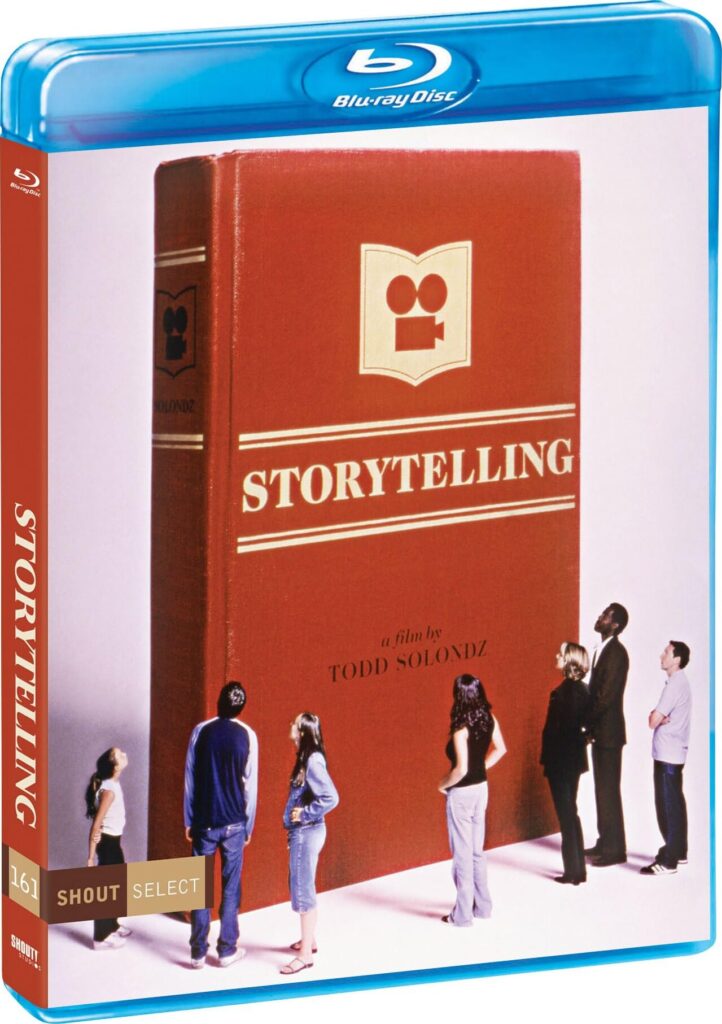
Storytelling (Shout! Factory) Todd Solondz’s (Happiness) film is composed of two unrelated but savage indictments on the “school” experience. Fiction is about Mr. Scott (Robert Wisdom), a black, bitter, Pulitzer Prize-winning author turned college creative writing teacher. In class he mercilessly dissects the short story written by Marcus (Leo Fitzpatrick), a cerebral palsy-afflicted student, while balling Marcus’ girlfriend Vi (Selma Blair) later that night, forcing her to scream out racial slurs during the lovemaking session. Nonfiction features Toby (Paul Giamatti), a failed actor turned documentary filmmaker, who aims his camera at a dysfunctional high school student Scooby Livingston (Mark Webber) and his stifling suburban parents (John Goodman & Julie Hagerty). Solondz tries to circumvent criticism by having characters within the movie question his motivation. Wonderfully perverse.
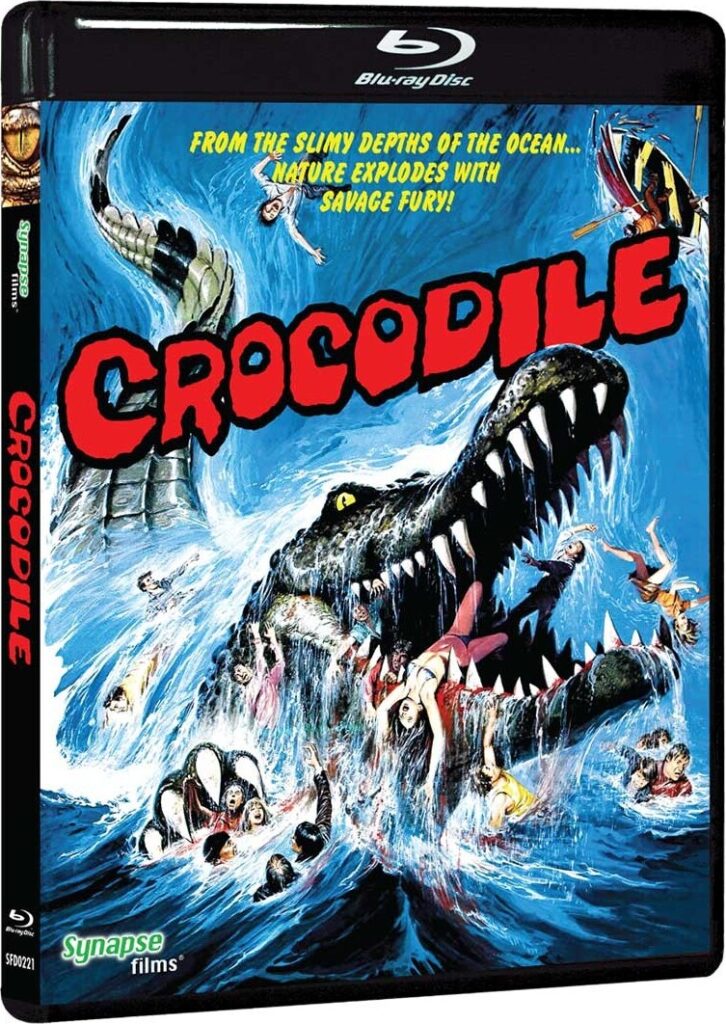
Crocodile (Synapse) Ludicrously trashy Jaws-rip-off set in Thailand about a surgeon, remiss for spending too much time in surgery and not enough with his wife and daughter. So, they go off on a seaside holiday only to have his family eaten by a giant crocodile. He and his friend (who also lost his fiancé) set off to kill the monster. Filled with bad miniatures, riotous dubbed-English dialogue and baffling action sequences, this hilariously inept mess was altered from the original version by producer Dick Randall and distributed in the United States by Herman Cohen (I Was a Teenage Frankenstein, Konga).
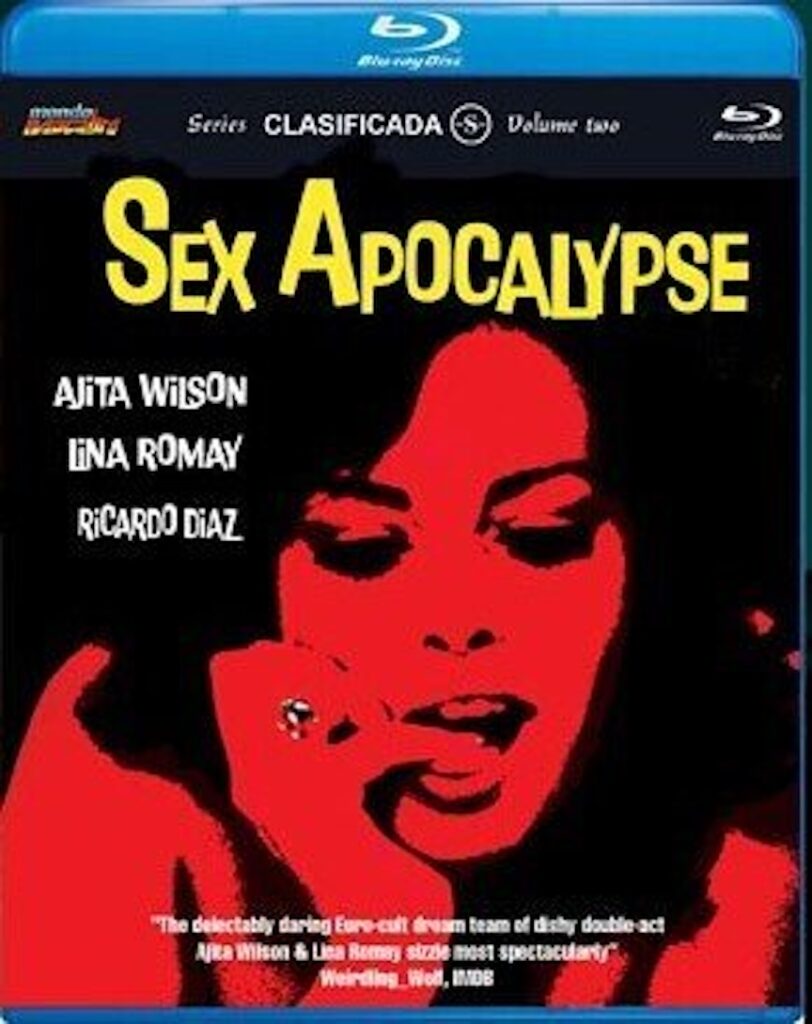
Sex Apocalypse (Mondo Macabro) The death of General Francisco Franco in Spain opened the floodgates for filmmakers to push the envelope. There was even a “S” rating for the more salacious erotic films. God knows, this one lives up to its scarlet letter. Directed by Carlos Aured (Blue Eyes of the Broken Doll) it’s about a group of morally bankrupt criminals who hole up in a villa with a swimming pool while the owner is away. They kidnap an heiress and blackmail the father while having sex in front of her, or with her, while they wait for the money. Starring director Jess Franco’s partner and muse Lina Romay and Amazonian beauty and transsexual Ajita Wilson as members of the libidinous gang. Sleazy fun with a surprisingly violent, bonkers ending.
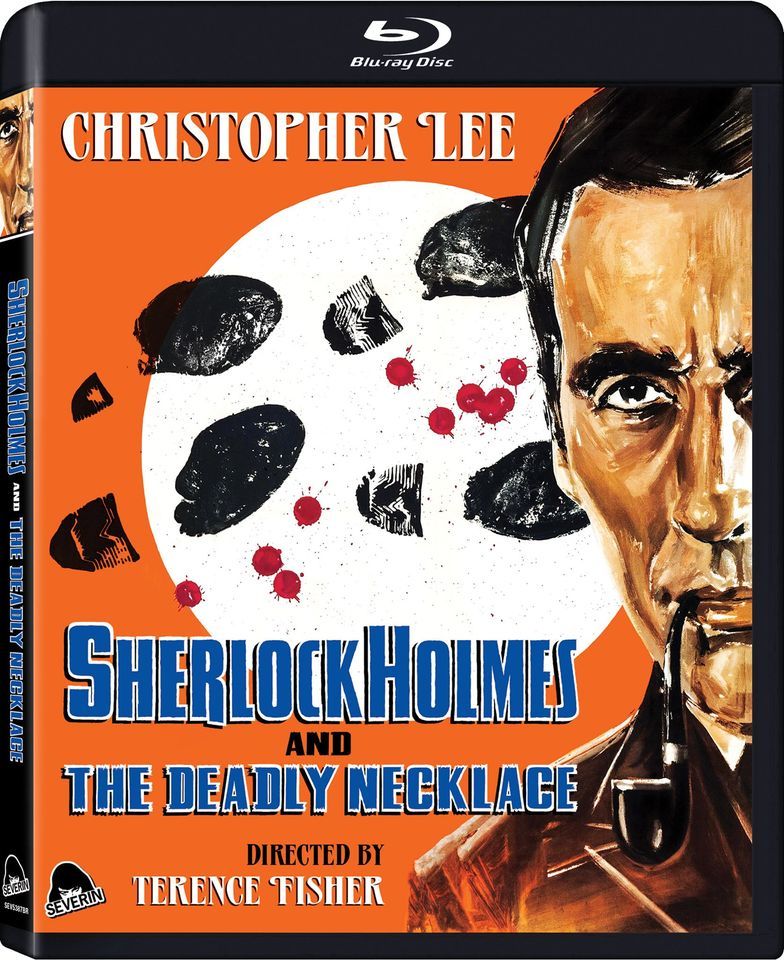
Sherlock Holmes and the Deadly Necklace (Severin) A fascinating rarity- this German-language black & white 1962 film starring Christopher Lee as the wily detective Sherlock Holmes, directed by Terence Fisher (Horror of Dracula) with a script by Curt Siodmak (The Wolf Man). Holmes, accompanied by the bungling, good-natured Doctor Watson (Thorley Walters), tracks down the sinister activities of Moriarty (Hans Sohnker), an esteemed archeologist, who is in possession of a stolen necklace from the crypt of Cleopatra (and, boy is it ugly). Holmes disguises himself in order to entrap the fiendish archenemy. Beautiful Senta Berger shows up as the wife of one of Moriarty’s victims. This is a gorgeous-looking print, scanned from the German negative, and comes with audio commentary by British gothic cinema scholar Barry Forshaw and Kim Newman, plus interviews with director Terence Fisher.
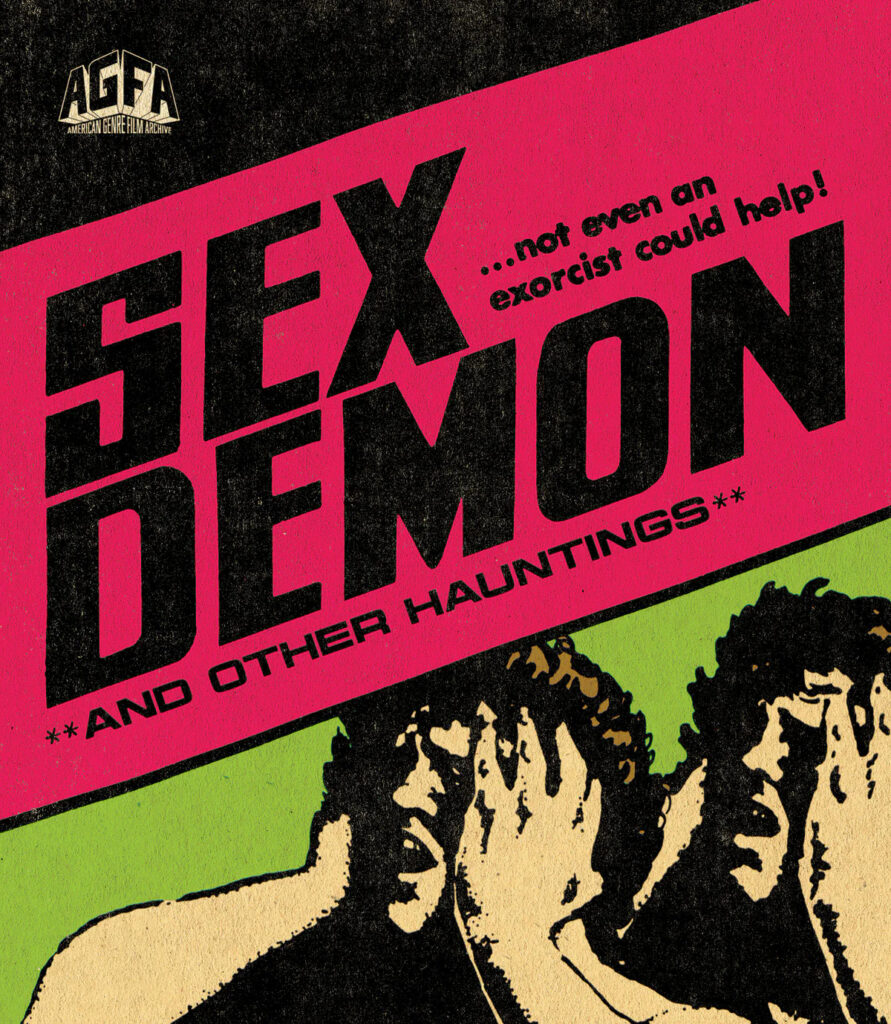
Sex Demon & Other Hauntings (AGFA) Three horror-related gay adult films from the 1970s. Sex Demon (1975) is about a man who buys an ugly medallion for his boyfriend at a Christopher Street curio shop only to find out it is cursed, causing the boyfriend to act-out sexually and even commit murder. He even attacks a guy in the bathroom of the Gaiety male burlesque house (where director J. C. Cricket danced himself). Preserved from a 16mm theatrical print, this Exorcist rip-off is pretty outrageous. Deadly Blows (1971) is the best film in this collection. (The print is also pristine). It’s about a strange but cute, long-haired, owner of a remote country house. When hot men stop by, he seduces and kills them. With weird voice-overs and startling murders there’s something weirdly hypnotic about it. 10:30 P.M. Monday (1975) is about a gay man who gets a cryptic invitation, is picked up by a fancy car on Monday at 10:30 PM and transported to a sinister sex club. There is informative and fun commentary by AGFA’s Elizabeth Purchell.

